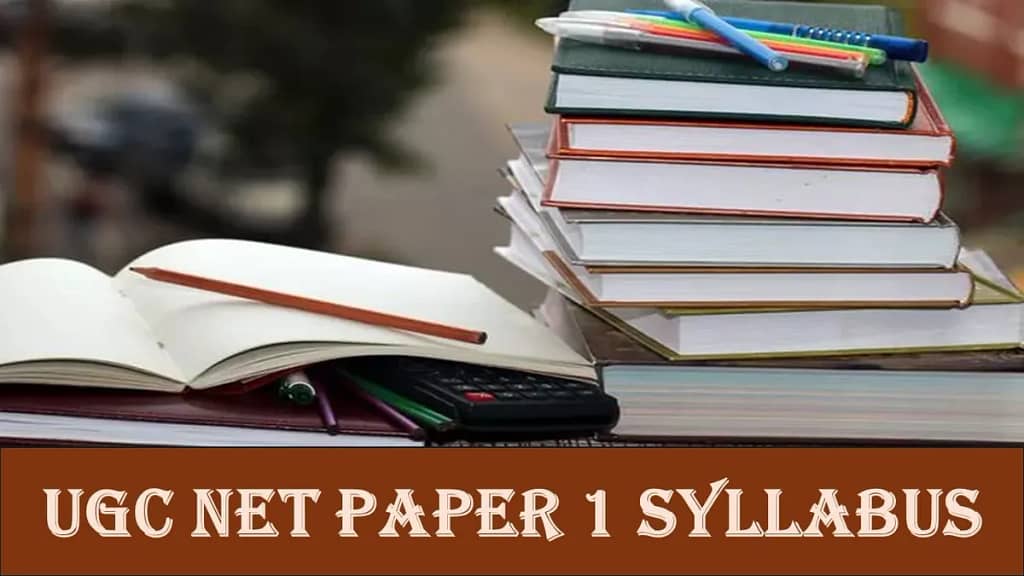
UGC NET Syllabus 2024: The UGC NET 2024 syllabus for Paper 1 has been released. This news came out on June 1, 2024. If you’re preparing for the UGC NET exam, this information is essential. The National Testing Agency (NTA) conducts the UGC NET exam. It is important for those who want to become assistant professors or get a junior research fellowship in Indian universities and colleges.
Let’s break down the UGC NET Paper 1 syllabus for 2024. We will also look at the exam pattern and the topics covered.
UGC NET Exam Pattern 2024
The UGC NET exam consists of two papers: Paper 1 and Paper 2. Paper 1 is common for all candidates. It tests teaching and research aptitude. Paper 2 is subject-specific.
Paper 1: General Paper on Teaching and Research Aptitude
- Total Questions: 50
- Total Marks: 100
- Duration: 1 hour
- Type of Questions: Multiple Choice Questions (MCQs)
Each question in Paper 1 carries 2 marks. There is no negative marking. This paper aims to assess the candidate’s teaching and research skills. It also tests reasoning ability, comprehension, divergent thinking, and general awareness.
Detailed Syllabus for UGC NET Paper 1
The syllabus for Paper 1 covers various topics. These topics are designed to test different skills and knowledge areas. Here is a detailed look at the syllabus:
1. Teaching Aptitude
- Teaching Concept: Understand the concept of teaching and its objectives.
- Learner’s Characteristics: Know the characteristics of learners.
- Factors Affecting Teaching: Learn about factors affecting teaching, such as teacher characteristics, student characteristics, and support material.
- Methods of Teaching: Familiarize yourself with different teaching methods and techniques.
- Teaching Aids: Use teaching aids effectively.
- Evaluation Systems: Understand different evaluation systems and methods of evaluation.
2. Research Aptitude
- Research Concept: Understand what research is and its characteristics.
- Types of Research: Learn about different types of research, including fundamental, applied, and action research.
- Methods of Research: Study different research methods like experimental, descriptive, historical, qualitative, and quantitative.
- Steps in Research: Know the steps involved in the research process.
- Thesis and Article Writing: Understand the format and styles of thesis and article writing.
- Research Ethics: Learn about ethics in research and publication.
3. Comprehension
- Reading Comprehension: Practice reading passages and answering questions based on them.
- Interpretation: Focus on interpreting the passage’s meaning and answering accurately.
4. Communication
- Communication Basics: Understand the nature and characteristics of communication.
- Types of Communication: Learn about different types of communication: verbal, non-verbal, and written.
- Barriers to Communication: Know the barriers to effective communication and how to overcome them.
- Effective Communication: Understand how to communicate effectively in different situations.
5. Mathematical Reasoning and Aptitude
- Number Series: Practice number series questions.
- Letter Series: Work on letter series questions.
- Codes and Relationships: Understand coding-decoding and relationship-based questions.
- Mathematical Aptitude: Solve problems related to basic mathematical concepts and operations.
6. Logical Reasoning
- Understanding Arguments: Study how to analyze arguments.
- Analogies: Practice analogy questions.
- Venn Diagrams: Learn how to solve problems using Venn diagrams.
- Indian Logic: Familiarize yourself with the basics of Indian logic.
7. Data Interpretation
- Data Types: Understand different types of data.
- Data Sources: Learn about various data sources.
- Data Interpretation: Practice interpreting data from tables, graphs, and charts.
8. Information and Communication Technology (ICT)
- ICT Basics: Understand the basics of ICT.
- ICT Tools: Learn about various ICT tools and their uses.
- Applications: Study the applications of ICT in education and research.
- Digital Initiatives: Familiarize yourself with the latest digital initiatives in education.
9. People, Development, and Environment
- People and Environment: Understand the relationship between people and the environment.
- Natural Resources: Learn about different types of natural resources and their uses.
- Pollution: Study the causes, effects, and control measures of pollution.
- Environmental Issues: Know about major environmental issues and sustainable development.
10. Higher Education System
- Higher Education Institutions: Study the structure and functions of higher education institutions in India.
- Professional Councils: Learn about various professional councils.
- Policies and Governance: Understand the policies and governance of higher education.
Tips for Preparing UGC NET Paper 1
Preparing for UGC NET Paper 1 requires a strategic approach. Here are some tips:
- Understand the Syllabus: Start by understanding the syllabus thoroughly. Know what each topic covers.
- Create a Study Plan: Make a study plan that covers all topics. Allocate more time to topics you find difficult.
- Practice Regularly: Regular practice is key. Solve previous years’ question papers and take mock tests.
- Stay Updated: Keep yourself updated with current affairs, especially in the education sector.
- Use Quality Study Material: Use good quality study materials and books. Online resources can also be very helpful.
- Focus on Weak Areas: Identify your weak areas and focus more on them.
- Join Study Groups: Joining study groups can help you share knowledge and get new insights.
SGPGIMS Recruitment 2024, 1806 Vacancies, Eligibility, Apply Online, Selection Process